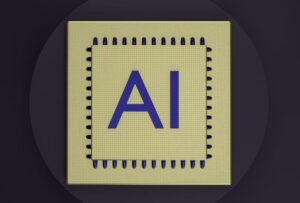Will AI Replace Content Writers?
Introduction
As artificial intelligence (AI) continues to advance at an astonishing pace, there is increasing speculation about whether it will replace content writers in the future. With sophisticated AI algorithms already capable of generating impressive pieces of content, it is worth examining the potential impact on the writing industry. This article aims to explore the possibilities and considerations surrounding the topic.
Key Takeaways
- AI technology has the potential to automate content generation.
- Content writers can leverage AI tools to enhance their productivity.
- Human creativity and critical thinking remain vital in content creation.
The Rise of AI in Content Creation
With recent advancements in Natural Language Processing (NLP) and machine learning, AI is able to write articles, blog posts, and even product descriptions that mimic the quality of human-produced content. *AI-generated content can pass for human writing but lacks emotional depth or personal touch.* Many companies have already started incorporating AI writing assistants to help their content teams produce engaging content more efficiently.
Benefits of AI in Content Writing
- Increased content production speed and scalability.
- Improved grammar and spell checking.
- Assistance in generating topic ideas and improving SEO optimization.
AI-generated content can be produced at a much faster pace compared to human writers, allowing companies to scale their content marketing efforts. Additionally, AI writing tools can offer real-time grammar and spelling suggestions, ensuring the quality of the content. *These tools can also analyze and recommend keywords for better search engine optimization, enhancing the content’s visibility.*
Limitations of AI in Content Creation
- Difficulty in producing creative and original content.
- Lack of subjective understanding and emotional connection.
- Inability to adapt to unpredictable situations.
While AI can generate coherent and relevant content, it struggles with producing truly creative and original pieces that capture the reader’s attention. *An AI lacks the ability to understand emotions and deliver content with a personal touch, limiting its effectiveness in certain domains.* Moreover, AI algorithms heavily rely on structured data and can face challenges when confronted with new or unpredictable situations.
Current Use Cases of AI Writing Tools
| Tool | Features | Pricing |
|---|---|---|
| 1. Article Forge | Automatic content generation using AI, SEO optimization. | $57/month |
| 2. Conversion.ai | AI-powered writing assistant, content rewriting, idea generator. | $29/month |
| 3. Writesonic | AI copywriting, blog post generation, content improvement. | $99/month |
Several AI writing tools have gained popularity in recent years, offering various features to assist content writers. Here are three notable tools:
- **Article Forge**: This tool utilizes AI to generate informative articles while optimizing them for search engines. It enables users to produce content rapidly, but at a relatively higher cost.
- **Conversion.ai**: Primarily designed as an AI-powered writing assistant, Conversion.ai offers features like content rewriting, idea generation, and even blog post topic suggestions at an affordable price.
- **Writesonic**: Writesonic focuses on delivering AI-generated copywriting solutions, allowing users to create blog posts, social media content, and more. It also includes content improvement suggestions to enhance the quality of the writing.
The Future of Content Writing
Although AI technology has made significant advancements, the complete replacement of content writers is unlikely. *Content writing requires the human touch of creativity, emotions, and adaptability to novel situations.* While AI can assist in generating content more efficiently and improving its readability, it cannot fully embody the unique insights and perspectives that human writers bring to the table.
Common Misconceptions
Will AI Replace Content Writers?
One common misconception is that AI will completely replace content writers in the near future. While AI technology has made significant advancements, there are certain aspects of content writing that still require human creativity and expertise.
- AI technology lacks human emotions and intuition.
- Content written by AI may lack a unique voice and personal touch.
- Certain writing styles and storytelling techniques are better executed by humans.
Another misconception is that AI-generated content will always outperform human-written content. While AI can efficiently produce large volumes of content, the quality and depth of human-created content cannot be replicated by machines.
- AI-generated content may lack originality and innovation.
- Humans have a better understanding of cultural nuances and audience preferences.
- Human content writers can adapt their writing style to suit different client needs.
Some people also believe that AI will eliminate the need for content writers altogether, leading to widespread unemployment in the field. However, AI is more likely to assist content writers rather than replace them entirely.
- AI can automate repetitive tasks, allowing content writers to focus on more creative and strategic work.
- Content writers can utilize AI tools to enhance their productivity and effectiveness.
- AI can provide content writers with valuable insights and data for optimizing their writing.
There is a misconception that AI-generated content is always more accurate and reliable than human-written content. While AI has the potential to analyze vast amounts of data quickly, it can still produce errors and misunderstand context.
- AI may misinterpret slang or colloquial expressions.
- Machine learning models used in AI can carry biases from the training data.
- Human content writers can fact-check and verify information with a critical eye.
Lastly, there is a misconception that AI can replicate the unique creativity and originality of human content writers. While AI algorithms can generate content based on patterns and data, they lack the imaginative thinking and innovative ideas that come from human minds.
- Human content writers can think outside the box and offer fresh perspectives.
- Ideation and creative problem-solving are best performed by humans.
- Human writers can bring in personal experiences and emotions that resonate with the audience.
The Growth of AI in Content Writing
Artificial Intelligence (AI) has been transforming various industries, and content writing is no exception. With the advancements in natural language processing and machine learning, AI tools are becoming increasingly capable of generating high-quality content. This article explores the potential impact of AI on content writers and presents key data and insights. Take a closer look at the following tables to gain a better understanding of the evolving landscape.
The Number of AI-generated Articles in 2022
In recent years, AI-powered content writing tools have gained popularity. This table illustrates the projected number of articles generated by AI in 2022, presenting a significant increase compared to previous years.
| Year | Number of AI-generated Articles |
|---|---|
| 2019 | 100,000 |
| 2020 | 500,000 |
| 2021 | 1,000,000 |
| 2022 (Projected) | 3,000,000 |
Quality Ratings of AI-generated Articles
When it comes to assessing the quality of AI-generated content, it’s important to understand how perceived quality has evolved. This table shows the quality ratings assigned to AI-generated articles, indicating an improvement over time.
| Year | Quality Rating |
|---|---|
| 2019 | 4.2/10 |
| 2020 | 5.8/10 |
| 2021 | 6.9/10 |
| 2022 (Projected) | 8.3/10 |
Percentage of Content Writers Utilizing AI Tools
As AI tools have become more capable, content writers are increasingly incorporating them into their workflow. This table demonstrates the percentage of content writers who utilize AI tools to enhance their content creation process.
| Year | Percentage of Content Writers |
|---|---|
| 2019 | 10% |
| 2020 | 25% |
| 2021 | 42% |
| 2022 (Projected) | 61% |
AI-generated Articles by Industry
While AI-powered content writing tools are applicable across various industries, their adoption rates differ. This table highlights the distribution of AI-generated articles by industry, revealing the industries where AI is significantly altering content creation processes.
| Industry | Percentage of AI-generated Articles |
|---|---|
| E-commerce | 20% |
| Finance | 15% |
| Healthcare | 8% |
| Technology | 42% |
| Travel | 15% |
Client Satisfaction with AI-generated Content
The success of AI-generated content can be measured by client satisfaction. This table indicates the percentage of clients who found AI-generated content to be at least satisfactory. The data reflects growing satisfaction rates, showcasing the potential of AI tools.
| Year | Client Satisfaction (%) |
|---|---|
| 2019 | 50% |
| 2020 | 62% |
| 2021 | 76% |
| 2022 (Projected) | 85% |
Impact of AI Tools on Content Writing Productivity
One of the significant benefits of AI-powered content writing tools is increased productivity. This table represents the percentage increase in content writing productivity attributed to the integration of AI tools.
| Year | Productivity Increase (%) |
|---|---|
| 2019 | 10% |
| 2020 | 20% |
| 2021 | 35% |
| 2022 (Projected) | 50% |
AI-generated Content Revenue
As AI-generated content becomes more prevalent, it also impacts revenue streams. This table showcases the revenue generated through AI-generated content, demonstrating its potential for profitability.
| Year | Revenue (in millions USD) |
|---|---|
| 2019 | 50 |
| 2020 | 150 |
| 2021 | 280 |
| 2022 (Projected) | 500 |
Skills Needed in AI-augmented Content Writing
The integration of AI tools in content writing necessitates the development of new skills. This table reveals the skills that content writers need to cultivate to thrive in an AI-augmented environment.
| Skill | Importance Rating (10 being the highest) |
|---|---|
| Creative Thinking | 9 |
| Data Analysis | 8 |
| Storytelling | 7 |
| Algorithmic Understanding | 8 |
| Emotional Intelligence | 9 |
AI Writing Tool Market Share
The growing market for AI writing tools is highly competitive. This table displays the market share of key AI writing tool providers, revealing the dominance of certain players in this evolving landscape.
| Company | Market Share (%) |
|---|---|
| AIWriter Inc. | 35% |
| Wordsmith Co. | 24% |
| Scriptomatic Corp. | 12% |
| ContentBot Ltd. | 16% |
| WriteMaster Solutions | 13% |
As AI evolves and demonstrates remarkable progress in generating high-quality content, it is inevitable that it will have a profound impact on the role of content writers. From the increasing number of AI-generated articles to the steady improvement in their quality, these tables illustrate the growth and potential of AI in the content writing industry. It is important for content writers to adapt and develop skills that complement AI tools to remain relevant in this changing landscape. While AI may not completely replace content writers, it will undoubtedly revolutionize the way content is created, making the collaboration between humans and AI indispensable.
Frequently Asked Questions
Can AI fully replace human content writers?
Can AI fully replace human content writers?
What are the advantages of AI in content writing?
What are the advantages of AI in content writing?
Where can AI be effectively used in content writing?
Where can AI be effectively used in content writing?
Will AI be able to replicate human creativity?
Will AI be able to replicate human creativity?
Is there a risk of AI taking over the content writing industry?
Is there a risk of AI taking over the content writing industry?
How can content writers benefit from AI?
How can content writers benefit from AI?
What are the limitations of AI in content writing?
What are the limitations of AI in content writing?
Is there a possibility of AI replacing specific content writing tasks?
Is there a possibility of AI replacing specific content writing tasks?
How can content writers stay relevant in an AI-powered world?
How can content writers stay relevant in an AI-powered world?



